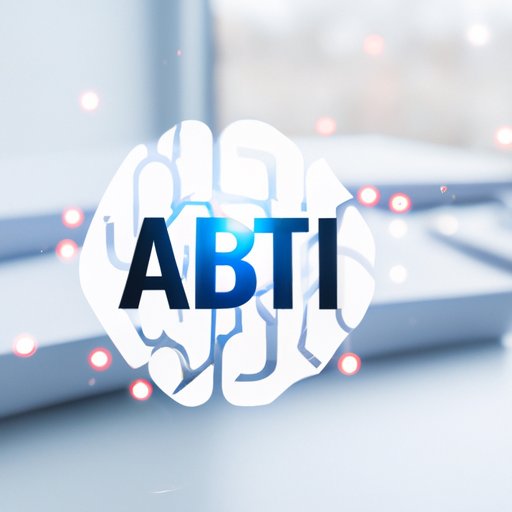Introduction
Artificial intelligence (AI) chips are specialized processors designed to handle the complex tasks associated with machine learning algorithms. As machine learning becomes increasingly important in modern technology, the demand for AI chips is growing rapidly. This article will provide a comprehensive overview of AI chips, including the benefits they offer businesses, the differences between them and traditional processors, the impact they have on machine learning, and their potential applications.

Benefits of AI Chips for Businesses
AI chips offer a number of advantages for businesses looking to implement machine learning technologies. The most significant benefit is increased efficiency. AI chips are optimized for machine learning tasks, which means they can process data faster than traditional processors. This allows businesses to get more work done in less time, resulting in cost savings and improved productivity.
In addition to improved efficiency, AI chips also offer enhanced security. AI chips are designed with built-in security features such as encryption and authentication, making them more secure than traditional processors. This allows businesses to protect their data from malicious actors and ensure that their systems remain secure.
Finally, AI chips can help businesses make better decisions. With the ability to quickly analyze large amounts of data, AI chips can provide insights that would otherwise be impossible to obtain. This can help businesses make informed decisions based on accurate information, leading to better outcomes.

Differences Between AI Chips and Traditional Processors
Although AI chips and traditional processors may appear similar, there are several key differences. The most important difference is the type of processing they are designed for. AI chips are specifically designed to perform the complex calculations required by machine learning algorithms, whereas traditional processors are designed for more general-purpose computing tasks.
The architectures of AI chips and traditional processors are also different. AI chips are designed with multiple cores and powerful accelerators, allowing them to process data faster. Traditional processors are designed with fewer cores and simpler architectures, making them more suitable for basic computing tasks.
Finally, AI chips have unique performance requirements. AI chips must be able to process large amounts of data quickly and accurately, whereas traditional processors need only to be able to complete basic tasks efficiently. This means that AI chips require more power and greater computational resources than traditional processors.
Impact of AI Chips on Machine Learning
AI chips have had a significant impact on the field of machine learning. The most noticeable effect is faster training times. AI chips are able to process data much faster than traditional processors, resulting in shorter training times for machine learning algorithms. This, in turn, allows machine learning models to become more accurate and reliable.
AI chips also enable more accurate predictions. By leveraging their powerful processors and accelerators, AI chips can process data more quickly and accurately than traditional processors. This results in more accurate predictions from machine learning algorithms, leading to better results.
Finally, AI chips have lower power requirements. Because AI chips are designed specifically for machine learning tasks, they require less power than traditional processors. This makes them more energy efficient and cost effective, resulting in lower operational costs.

Potential Applications of AI Chips
AI chips have a number of potential applications in modern technology. One of the most promising areas is robotics. By equipping robots with AI chips, developers can create robots that are capable of performing complex tasks with greater accuracy and speed than ever before.
Another area where AI chips are being used is autonomous vehicles. AI chips allow autonomous vehicles to process data faster and more accurately, resulting in smoother and safer operation. This technology is already being used in some self-driving cars, and its use is expected to grow in the future.
Finally, AI chips are being used in smart home devices. Smart home devices such as thermostats, lighting systems, and security systems are becoming increasingly sophisticated, and AI chips are essential for these devices to function properly. By equipping these devices with AI chips, developers can create smarter, more efficient home automation systems.
Future of AI Chips in Technology
The future of AI chips in technology looks bright. According to a recent report by MarketsandMarkets, the global AI chip market is expected to reach $14.9 billion by 2023. This indicates that AI chips are becoming increasingly popular as businesses look to capitalize on the benefits they offer.
As AI chips become more widespread, advances in machine learning technology are expected to follow. AI chips are essential for machine learning algorithms to process data quickly and accurately, and with more powerful AI chips available, machine learning models will become even more accurate and reliable.
Finally, AI chips are expected to become ubiquitous in all types of technology. As businesses continue to recognize the advantages of AI chips, more and more applications will be developed, leading to widespread adoption of the technology.
Conclusion
AI chips are an essential component of modern technology, and their importance is only expected to grow in the coming years. They offer numerous advantages for businesses, including increased efficiency, enhanced security, and improved decision making. They are also different from traditional processors, with specialized processing for machine learning algorithms and unique performance requirements. Finally, AI chips have a number of potential applications, including robotics, autonomous vehicles, and smart home devices. With increasing popularity and advances in machine learning technology, AI chips are set to become ubiquitous in all types of technology.
(Note: Is this article not meeting your expectations? Do you have knowledge or insights to share? Unlock new opportunities and expand your reach by joining our authors team. Click Registration to join us and share your expertise with our readers.)
